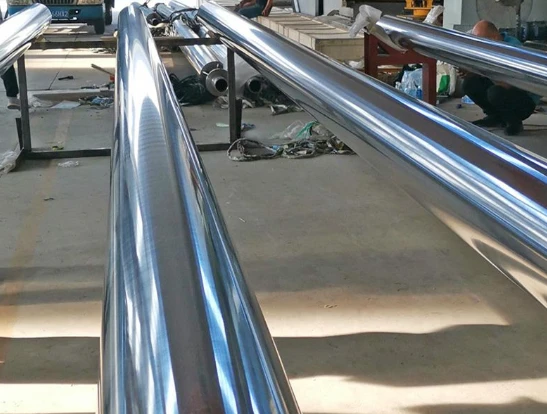
-
 Afrikaans
Afrikaans -
 Albanian
Albanian -
 Amharic
Amharic -
 Arabic
Arabic -
 Armenian
Armenian -
 Azerbaijani
Azerbaijani -
 Basque
Basque -
 Belarusian
Belarusian -
 Bengali
Bengali -
 Bosnian
Bosnian -
 Bulgarian
Bulgarian -
 Catalan
Catalan -
 Cebuano
Cebuano -
 China
China -
 China (Taiwan)
China (Taiwan) -
 Corsican
Corsican -
 Croatian
Croatian -
 Czech
Czech -
 Danish
Danish -
 Dutch
Dutch -
 English
English -
 Esperanto
Esperanto -
 Estonian
Estonian -
 Finnish
Finnish -
 French
French -
 Frisian
Frisian -
 Galician
Galician -
 Georgian
Georgian -
 German
German -
 Greek
Greek -
 Gujarati
Gujarati -
 Haitian Creole
Haitian Creole -
 hausa
hausa -
 hawaiian
hawaiian -
 Hebrew
Hebrew -
 Hindi
Hindi -
 Miao
Miao -
 Hungarian
Hungarian -
 Icelandic
Icelandic -
 igbo
igbo -
 Indonesian
Indonesian -
 irish
irish -
 Italian
Italian -
 Japanese
Japanese -
 Javanese
Javanese -
 Kannada
Kannada -
 kazakh
kazakh -
 Khmer
Khmer -
 Rwandese
Rwandese -
 Korean
Korean -
 Kurdish
Kurdish -
 Kyrgyz
Kyrgyz -
 Lao
Lao -
 Latin
Latin -
 Latvian
Latvian -
 Lithuanian
Lithuanian -
 Luxembourgish
Luxembourgish -
 Macedonian
Macedonian -
 Malgashi
Malgashi -
 Malay
Malay -
 Malayalam
Malayalam -
 Maltese
Maltese -
 Maori
Maori -
 Marathi
Marathi -
 Mongolian
Mongolian -
 Myanmar
Myanmar -
 Nepali
Nepali -
 Norwegian
Norwegian -
 Norwegian
Norwegian -
 Occitan
Occitan -
 Pashto
Pashto -
 Persian
Persian -
 Polish
Polish -
 Portuguese
Portuguese -
 Punjabi
Punjabi -
 Romanian
Romanian -
 Russian
Russian -
 Samoan
Samoan -
 Scottish Gaelic
Scottish Gaelic -
 Serbian
Serbian -
 Sesotho
Sesotho -
 Shona
Shona -
 Sindhi
Sindhi -
 Sinhala
Sinhala -
 Slovak
Slovak -
 Slovenian
Slovenian -
 Somali
Somali -
 Spanish
Spanish -
 Sundanese
Sundanese -
 Swahili
Swahili -
 Swedish
Swedish -
 Tagalog
Tagalog -
 Tajik
Tajik -
 Tamil
Tamil -
 Tatar
Tatar -
 Telugu
Telugu -
 Thai
Thai -
 Turkish
Turkish -
 Turkmen
Turkmen -
 Ukrainian
Ukrainian -
 Urdu
Urdu -
 Uighur
Uighur -
 Uzbek
Uzbek -
 Vietnamese
Vietnamese -
 Welsh
Welsh -
 Bantu
Bantu -
 Yiddish
Yiddish -
 Yoruba
Yoruba -
 Zulu
Zulu
fiberglass fan
The Versatile Applications of Fiberglass Fans
Fiberglass fans have become a popular choice in various industries due to their durability, lightweight nature, and impressive performance under a wide range of conditions. As an advanced material, fiberglass not only enhances the functionality and longevity of fans but also offers several advantages over traditional materials like metal and plastic.
One of the key benefits of fiberglass fans is their resistance to corrosion and weathering. In environments where moisture, chemicals, and extreme temperatures are common, such as in chemical plants, wastewater treatment facilities, and outdoor applications, fiberglass fans can withstand these hostile conditions without deteriorating. This resilience not only extends the lifespan of the fans but also reduces maintenance costs and downtime, making them an attractive option for operators.
Another significant advantage of fiberglass fans is their lightweight design. Unlike metal fans, fiberglass fans are much easier to handle and install. This lighter weight can lead to reduced energy consumption during operation, as electric motors are required to exert less force to rotate the fan blades. Additionally, easier installation can save labor costs and shorten project timelines, thus enhancing operational efficiency.
Fiberglass fans also exhibit excellent performance characteristics. With their aerodynamic designs, they can efficiently move large volumes of air while generating minimal noise. This is particularly beneficial in environments where noise pollution is a concern, such as schools, hospitals, and residential areas. The ability to customize the design of fiberglass fans further enhances their performance. Manufacturers can adapt blade size, pitch, and configuration to meet specific operational requirements, ensuring optimal airflow and pressure characteristics tailored to various applications.
fiberglass fan

The versatility of fiberglass fans allows them to be utilized in numerous sectors. In the agricultural domain, for instance, these fans are predominantly used in ventilation systems for poultry houses and greenhouses. By providing adequate air circulation, they help regulate temperatures and maintain a healthy environment for crops and livestock, leading to increased yields and better overall productivity.
In industrial applications, fiberglass fans are essential for fume extraction and dust collection systems. Their corrosion resistance makes them ideal for these roles, as they can handle harsh chemicals and particulate matter without risk of damage. Industries such as pharmaceuticals, textiles, and automotive heavily rely on effective ventilation systems, where fiberglass fans play a crucial role in maintaining product quality and workplace safety.
The environmental impact of fiberglass fans is another vital aspect to consider. As society moves towards more sustainable practices, the efficiency of fiberglass fans helps reduce energy consumption, thereby lowering greenhouse gas emissions. Moreover, many manufacturers are implementing eco-friendly production processes for fiberglass, adding to the appeal of these fans in environmentally conscious markets.
Despite the numerous advantages, it is essential to consider potential drawbacks as well. Fiberglass, while strong, can be more susceptible to impacts compared to metal options. In environments where heavy debris or physical damage is a risk, careful consideration should be made regarding the choice of materials. However, advancements in fiberglass technology are continuously addressing such concerns, leading to more resilient products.
In conclusion, fiberglass fans present an array of benefits that make them an excellent choice across various industries. Their corrosion resistance, lightweight nature, customized performance capabilities, and sustainability align perfectly with the needs of modern applications. As industries continue to evolve and prioritize efficiency and ecological responsibility, fiberglass fans will undoubtedly play a pivotal role in driving progress while ensuring reliable air movement solutions. Embracing the advantages of fiberglass fans can lead to improved operational efficiency and a healthier environment, setting the stage for innovations in ventilation and cooling solutions for years to come.









